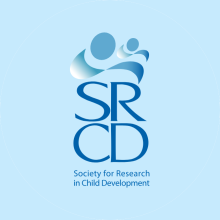March 2009 Spotlight on the SRCD Policy Fellow: Diana Tyson, Ph.D.
2008-2009 Federal Executive Branch Policy Fellow
It’s been an exciting time to be in the Office of the Assistant Secretary for Planning and Evaluation (ASPE), as many changes are occurring. I’m currently in the middle of my first year and serving as a fellow in the Division of Child and Youth Policy within Human Services Policy. I came to the fellowship with the goal of gaining exposure to a wide array of research and policy issues that pertain to youth and broadening my knowledge base as a developmental psychologist. Working at ASPE has certainly afforded that opportunity in my short time here.
To date, I’ve worked on projects that are focused on preventing risky sexual behavior among adolescents. In the earlier months of the fellowship, I monitored and helped to evaluate activities and research papers centered on exploring various approaches to preventing teen pregnancy among high school students. Starting in January, I was able to take advantage of the opportunity to write transition papers, where ASPE poses potential research agendas to the new administration. As such, I worked on a proposal to explore the influence of new forms of media (i.e. social networking websites, mp3s, and cell phones) on teen sexual activity. It will be exciting to watch the development of this project as the administration comes into HHS and establishes research priorities in our area. Overall, I’ve noticed that while maintaining the same research area, there are always activities that cut across research development, evaluation, and creating new recommendations for policy.
My other activities at ASPE have been largely shaped by the current economic crisis. Since my primary focus is youth, I’ve been working with colleagues to examine the impact of the crisis on runaway, throwaway, and homeless youth, as this group is particularly susceptible to engaging in risky sexual activity. In order to get a sense of whether there are increases in youth entering runway and homeless youth services and whether programs are experiencing a strain on their resources, we’ve been conducting site visits with local runaway and homeless youth shelters to better understand how programs are able to serve youth. As we gather information from these visits, we plan to expand the site visits to areas that have been hit hardest by unemployment and foreclosures to understand how youth have been affected.
Since joining ASPE, I’ve also been able to gain a better understanding of the office’s role in convening with agencies and coordinating research efforts both within and outside the department. Within HHS, I’ve served as the ASPE liaison for the Healthy People 2020 Family Planning Working Group, which is composed of multiple HHS agencies that work to reduce risky sexual behavior among teens. As part of this group, I’ve helped identify and refine the objectives that pertain to the reproductive health of adolescents and young adults. I’ve also been able to serve on interagency councils that work across departments. As a member of the Research and Innovation Committee of the Interagency Forum on Child and Family Statistics, I’ve been able to collaborate with researchers in the Department of Justice and the Department of Education on the development of indicators that capture data for vulnerable adolescent populations, such as homeless, migrant, and youth in the juvenile justice system.
At the halfway point of my fellowship, I’ve already gained a tremendous understanding of how ASPE works to support research and evaluation and prepare policy options. In addition, I’ve also learned that the office’s role is quite flexible and office priorities can be quickly reshaped under a new administration and even more so, with regard to current economic conditions. Entering the fellowship at this unique time has really allowed me to see how fast-paced research at ASPE can be, and how pressing policy concerns shape the research we do. As new political officials enter, I look forward to the experience of working more on policy options and developing new research agendas.
